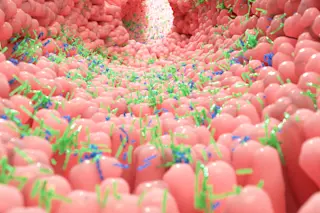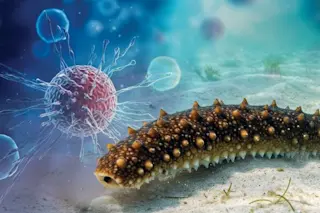Gene therapy relies on introducing into the body genetic material that can help fight a disease or correct a defect in a patient’s DNA. Finding a safe way to get therapeutic genes into the cells has been a major challenge, however. Many trials have used viruses as carriers, but this approach has run into problems with toxicity and dangerous immune system responses. So a new wave of gene therapy research is turning to nanoparticles to get the job done.
Cancer researcher Janet Sawicki of the Lankenau Institute for Medical Research in Pennsylvania, chemical engineer Robert Langer of MIT, and their colleagues are investigating biodegradable nanoparticles to deliver gene therapy for ovarian cancer. Their treatment uses the gene for diphtheria toxin, which causes cell death. Specific DNA sequences attached to the gene help to ensure that it targets only cancerous cells, killing them while leaving healthy ones alone. “That’s in contrast ...













